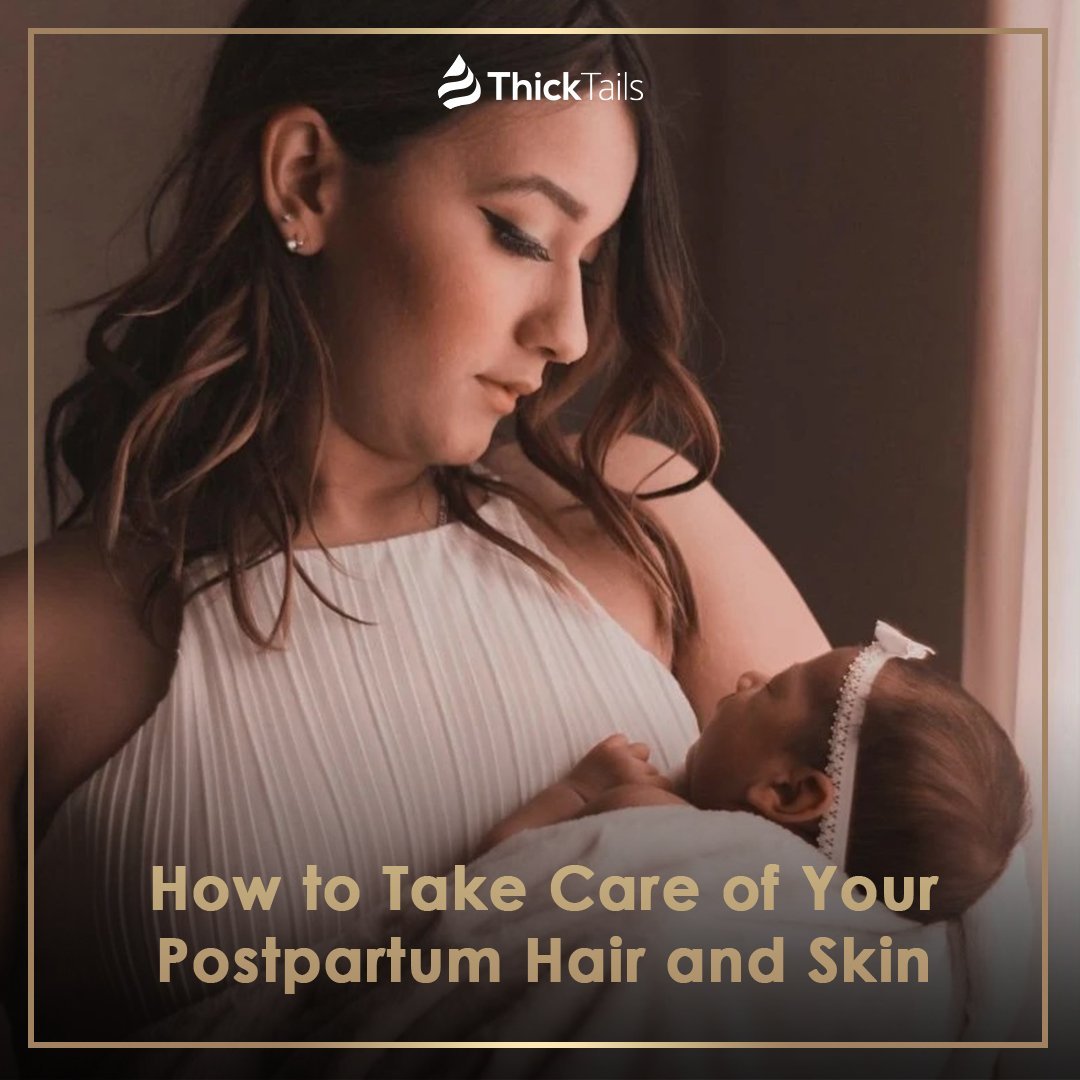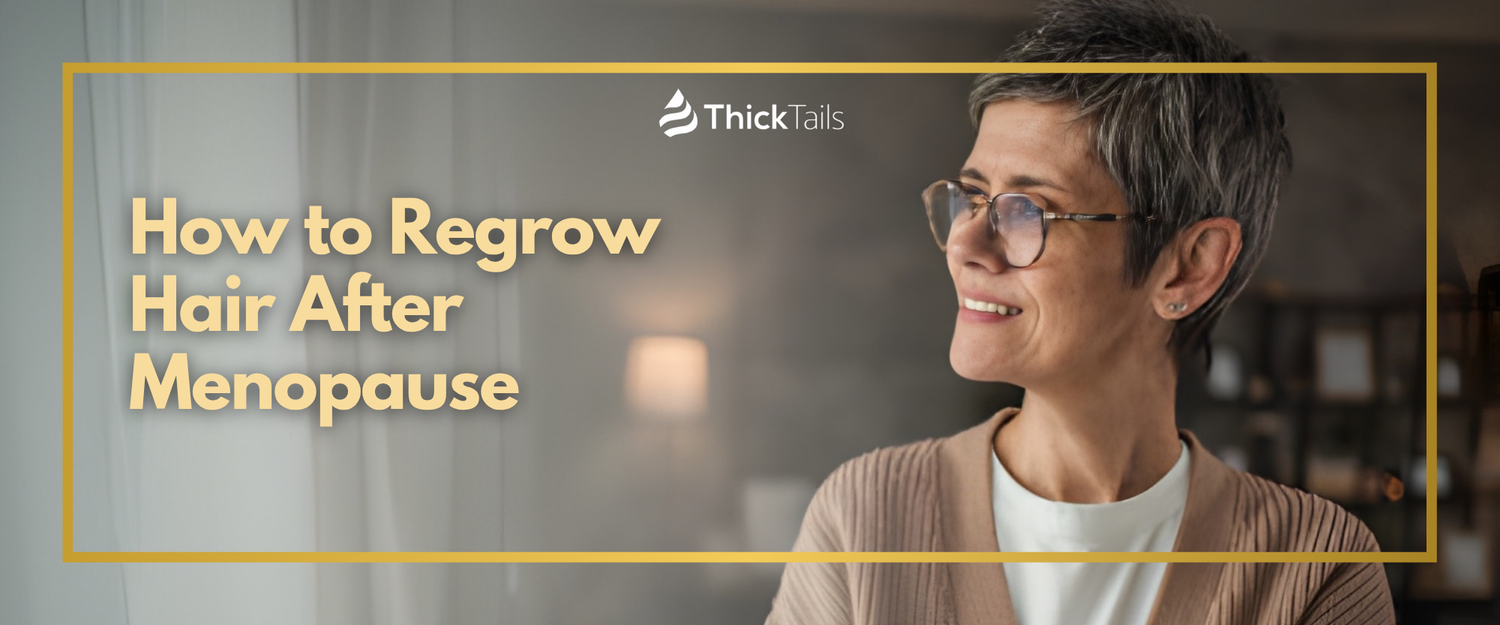Being a woman is not easy. A woman’s body undergoes dramatic changes in every milestone of her life, starting from her menarche until menopause. However, the world can testify that women are the strongest creatures on earth because they can go through pregnancy and survive childbirth.
During pregnancy, women experience hormonal changes. The ovaries have become more active in producing the female sex hormones estrogen and progesterone, resulting in a “pregnancy glow.” A pregnant woman will most likely feel a positive change in her skin and hair because of hormonal fluctuations.
After childbirth, the ovaries won’t be able to produce hormones again until the next menstrual cycle. This sudden change can put a woman’s body in a state of ‘shock’ and trigger hormonal imbalance. Estrogen and progesterone drastically decline in number, resulting in physical and internal bodily changes.
Contrary to the pregnancy glow, a woman’s hair and skin are adversely impacted after giving birth. These changes may not only affect her physical appearance, but it can also lower her self-esteem.
What happens to a woman’s body after pregnancy? How does childbirth affect one’s hair and skin? Get to know more about the following post-pregnancy changes and learn some tips to improve your postpartum skin and hair condition.

After-Pregnancy Diaries: Five Postpartum Effects on Your Skin
Changes in your skin are among the most evident and noticeable impacts after having a baby. What are some of these skin woes? Find out by reading the list below.
1. Stretch Marks
Giving birth to your adorable baby is a priceless moment, but it leaves you with stretch marks afterward. During pregnancy, the skin on your growing belly stretches wider as the baby gets bigger. Your arms, thighs, and legs may also become fatter. This sudden enlargement may force your skin to expand extensively to cover your pregnant belly. However, when the skin reaches its limit, its elastic fibers start to break, leaving your skin with stretch marks. Some stretch marks will remain visible on your skin after childbirth unless you do something to reduce or eliminate them.
2. Sagging skin
As mentioned earlier, your skin stretches as your baby bump expands. You also gain some weight during your pregnancy journey. Once your skin’s fibers are damaged, they can no longer return to its normal state, resulting in looser skin all over your body, most especially on your belly.
3. Appearance of melasma
High estrogen and progesterone levels during pregnancy can trigger the appearance of brownish spots called melasma, and this pregnancy-induced skin problem does not disappear even after childbirth. New mothers spend sleepless nights taking care of the newborn baby, which most likely puts them under stress. A combination of hormonal imbalance and stress prevent this skin discoloration from fading until the hormonal levels become stabilized again.
4. Acne breakout
Acne is a common effect during pregnancy due to the surge of progesterone. This hormonal imbalance can irritate your facial oil glands and trigger sebum overproduction. The excess oil can clog your pores, resulting in an acne breakout. Most of the time, the progesterone levels decline, and pimples disappear once the baby is out. However, progesterone remains abundant for some women, and so does the acne problem. Women can also get stressed after birth, which further hinders progesterone levels from going down.
5. Dry and itchy skin
The so-called “pregnancy glow” starts waning after childbirth since the skin becomes extremely dry and itchy. You can blame these skin issues on hormonal imbalance, but there is an underlying reason for this problem. Postpartum thyroiditis is a well-known culprit of postpartum hormonal changes. When the thyroid gland becomes inflamed after childbirth, it can hamper thyroid hormone production, causing anxiety, fatigue, weight gain or loss, skin dryness, and even hair loss. And of course, your skin becomes itchy due to its dryness.
Postpartum Effects on Hair: How Childbirth Affects Hair Quality
Your skin isn’t the only affected part after childbirth; hair growth problems can also happen. Check out the following postpartum effects on your hair.
1. Thinning Hair Strands
You may notice an adverse change in your hair density after giving birth. This postpartum effect can happen due to blood loss during childbirth. Therefore, your body still needs to recuperate after losing too much blood. Because of this after-math, your hair follicles may not be able to receive sufficient oxygen and nutrient nourishment because of the limited blood supply.
2. Dry Locks
Your hormones go crazy during pregnancy and suddenly decline after childbirth. This hormonal imbalance can hamper the nutrient and water distribution in the different parts of the body. Your body may not also be able to allocate more protein to strengthen your hair’s structure, making it more vulnerable to heat and pollution. As a result, your locks get quickly dry and brittle.
3. Increased facial and body hair growth
If estrogen production decreases, more androgens will take over the body, affecting the hair growth rate. Women may grow faster and thicker hair on the other parts of the body, such as the abdomen, arms, and legs. But don’t worry, for this unwanted hair growth will only last for six months.
4. Postpartum Hair Loss
Your hormonal levels abruptly decline after childbirth, which can stress your entire system. Unfortunately, this state of shock can disrupt your hair growth cycle. It will force your growing or anagen follicles to transition into the resting or telogen phase permanently, a hair loss condition known as telogen effluvium. As a result, your hair follicles are cut off from the blood supply, making it impossible for them to grow new strands. Your telogen shafts also gradually weaken, leading to premature shedding.

Five Important Tips on How to Take Good Care of Your Postpartum Hair and Skin
Now that you are aware of the possible hair growth and skin effects after childbirth, you must prevent these from happening. Peruse the following tips on how to take care of your skin and hair after pregnancy.
1. Wash your hair and body gently and thoroughly twice a day.
Rearing a child is not an excuse for you to skip your daily bath. If you want to take good care of your skin and hair, you must take a bath every day. Washing your hair and body helps remove the excess gunk and oil on your pores, thereby preventing skin and scalp inflammations. However, be gentle with washing your hair and skin, for they can get overly sensitive, especially after childbirth.
2. Use products that are gentle and safe for your hair and skin.
Both your hair and skin can be hypersensitive, especially to chemicals. Therefore, you need to be mindful of the products that you’re using. Opt to use hair growth and body wash products that are toxic-free, alcohol-free, and sulfate-free. It would also be best to use shampoos, conditioners, cleansers, and soaps made with natural ingredients.
3. Use essential oils to keep your hair and skin hydrated.
Plant-derived oils provide many benefits for your hair and skin. Slathering hair oil on your locks will keep your strands moisturized throughout the day. Essential oils such as tea tree oil, lavender oil, coconut oil, and peppermint oil are enriched with vitamins and antioxidants that can promote hair growth.
Essential oils also have calming and anti-inflammatory properties that can soothe your skin problems, such as acne and allergy. For example, tea tree oil is a natural remedy for skin-related issues like warts, acne, and dermatitis. Unfortunately, rubbing too much essential oil directly on your skin may clog pores and cause skin inflammations. It would be best to dilute your favorite essential oil with a carrier oil before applying it to your skin.
4. Boost your vitamin C consumption.
It is of utmost significance to strengthen your immune system after childbirth since your body is still recovering. Therefore, you need to feed yourself with all the necessary nutrients to keep skin and hair problems at bay. Eat a lot of foods rich in vitamin C. This vitamin is loaded with antioxidants that can protect your follicles against free radical damage. Vitamin C can also encourage collagen production, which is beneficial for both hair and skin. With vitamin C, you can restore your skin’s radiant glow and your hair’s healthy-looking appearance.
5. Sleep adequately so that your body can regenerate.
A lack of sleep is a prevalent issue among new mothers. Though it may seem impossible to enjoy a good night’s sleep every night, you should still prioritize sleep. Stress is a primary factor that triggers skin and hair problems, which can be induced due to inadequate sleep. Thus, try your best to sleep for six to eight hours every day.
Keep Your Hair and Skin Glowing Even After Pregnancy.
Pregnancy and childbirth will change every woman in so many ways; may they be good or bad. Recovery takes some time, but women must never use giving birth as an excuse to neglect their physical appearance. Bodily changes can happen after bearing a child, but they can be minimized if you know how to take good care of your body. Follow the tips mentioned above so that you can keep your hair bouncy and your skin youthful even after pregnancy.
Postpartum Hair Loss is Temporary.
Your post-pregnancy hair may not be in its best condition. In fact, you can lose many hair strands after childbirth. But, ease your anxiety, for you can still provide the best hair loss treatment for your postpartum locks. Use the safest and best shampoo for hair loss and apply some of the best ThickTails Hair Growth products to give your hair total hair restoration.









